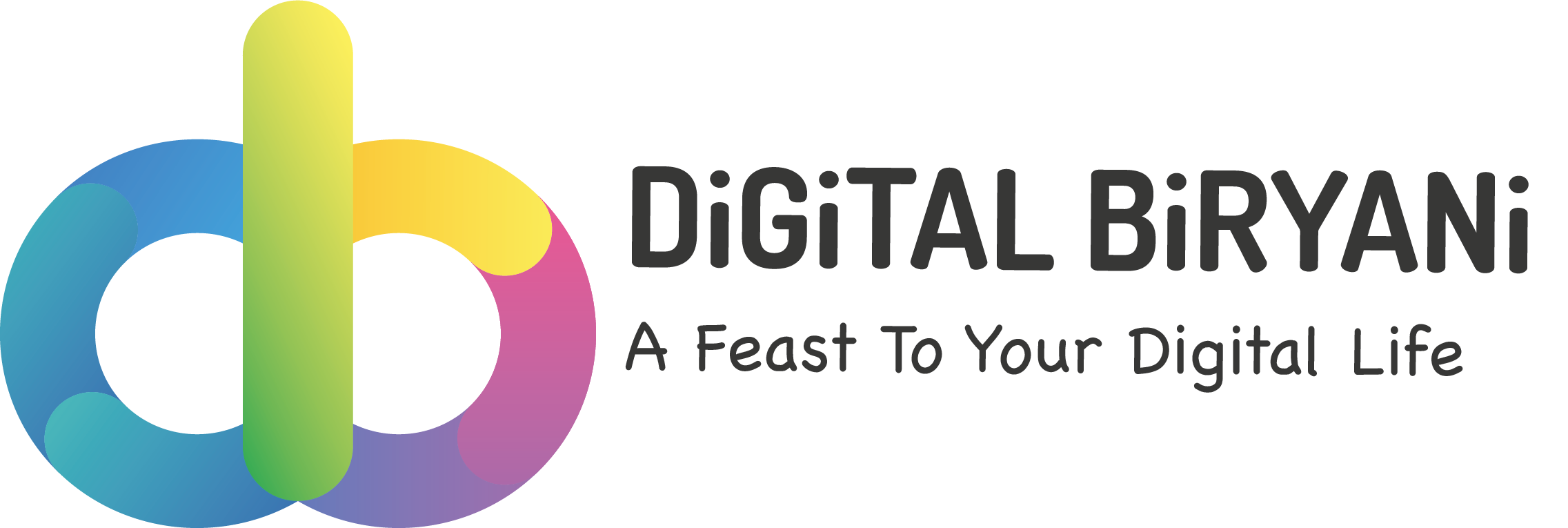In today’s digital age, the way we seek and gather information has evolved dramatically. As the volume of online content continues to grow exponentially, conventional keyword-based search engines are facing challenges in delivering precise, contextually relevant results. This is where the transformative capabilities of AI search engines step in, reshaping the landscape of information retrieval.
In this blog, we will discuss the Best AI Search Engines available for productive Internet surfing. Let’s start with exploring what is an AI Search Engine and how an AI Search Engine works.
What is an AI Search Engine?
An AI (Artificial Intelligence) search engine is a sophisticated digital tool that employs artificial intelligence technologies to enhance the process of retrieving information from vast amounts of data available on the internet or other databases. Unlike traditional search engines that rely primarily on keyword matching, AI search engines employ advanced algorithms, machine learning techniques, natural language processing, and semantic understanding to provide more relevant and contextually accurate search results.
How Does an AI Search Engine Work?
The launch of ChatGPT has worked as a benchmark in AI Search Engine Revolution. Let’s understand how ChatGPT and similar AI Search Engines Work to offer enhanced search results.
AI search engines operate through a combination of advanced technologies and algorithms that enable them to understand and interpret user queries, process vast amounts of data, and provide relevant search results. Here’s a breakdown of how AI search works:
User Query Interpretation
When a user enters a search query, an AI search engine utilizes natural language processing (NLP) techniques to understand the query’s context, intent, and underlying meaning. This involves analyzing the words, phrases, grammar, and relationships between terms to decipher what the user is looking for.
Semantic Understanding
Rather than relying solely on keyword matching, AI search engines focus on semantic understanding. They consider the relationships between words and concepts to provide results that are conceptually relevant, even if the exact keywords are not present.
Indexing and Data Retrieval
The search engine has an indexed database of web pages, documents, images, and other content. This index enables rapid retrieval of relevant information. The AI engine employs indexing techniques that facilitate efficient data retrieval based on the query’s parameters.
Machine Learning and Personalization
AI search engines use machine learning algorithms to continuously learn from user behavior, preferences, and interactions. They analyze patterns in user click-through rates, dwell time on pages, and engagement with search results. This data informs the engine’s ranking and relevance algorithms, leading to personalized results for each user.
Ranking and Relevance
AI algorithms rank search results based on a combination of factors. These include the content’s relevance to the query, the quality of the content, user engagement metrics, and other considerations. The search engine aims to present the most relevant and useful results at the top of the list.
Contextual Understanding
Contextual cues from the user’s query and browsing history play a significant role. For instance, if a user searches for “apple,” the search engine considers whether the user is referring to the fruit, the tech company, or something else based on the user’s context.
Image and Voice Recognition
Some AI search engines have the ability to process images and recognize objects within them. Additionally, they can process voice commands and convert them into text queries, enabling more intuitive and hands-free interactions.
Natural Language Interaction
Advanced AI search engines support natural language interaction, allowing users to ask questions in a conversational manner. The search engine understands the nuances of the language and responds in a way that feels more like human communication.
Feedback Loop and Continuous Improvement
The AI engine learns and adapts over time based on user feedback and interactions. If a user clicks on a particular result, the engine learns that the result is relevant. If users consistently engage with certain types of content, the engine refines its understanding of user preferences.
Real-time Updates and Trends
AI search engines constantly update their databases to include new content and changes on the web. This ensures that users have access to the latest information and trends.
Overall, AI search engines combine natural language understanding, semantic analysis, machine learning, and advanced indexing to provide users with more accurate, relevant, and personalized search results, making the search experience more efficient and user-friendly.
Is AI Search Engine Better Than Google Search Engine?
The question of whether an AI search engine is better than Google Search depends on various factors, including the specific use case, individual preferences, and the criteria by which one defines “better.” Both AI search engines and Google Search have their strengths and limitations. Let’s explore some advantages of AI Search Engines:
Advantages of AI Search Engines
Contextual Understanding: AI search engines excel at understanding the context and intent of user queries. This leads to more accurate results, especially for complex or ambiguous queries.
Personalization: AI engines can provide personalized search results based on user behavior and preferences. This can enhance the user experience by presenting content that aligns with individual interests.
Semantic Search: AI engines use semantic analysis to understand the meaning behind words, enabling them to provide results that are conceptually relevant, even if specific keywords are not used.
Vertical and Niche Searches: Some AI search engines specialize in specific domains or industries, providing more targeted results for particular user needs, such as scientific research or medical literature.
Natural Language Interaction: AI engines often support more natural and conversational language interactions, making the search experience feel more intuitive and human-like.
After understanding all this information about AI Search Engines, let’s explore the various options available to us. Let’s discuss the Best AI Search Engines For a Productive and Effective Web Surfing Experience.
List of the Best AI Search Engines To Enhance Your Search
These are the Best AI Search Engines for efficient Internet search results.
1. You.com
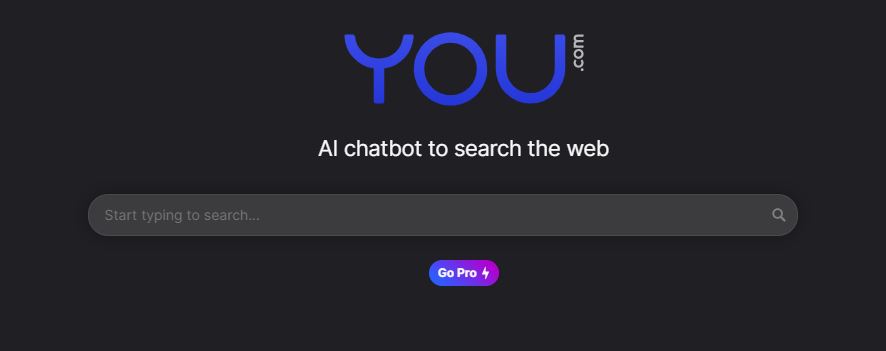
- You.com is an Artificial Intelligence (AI) powered search engine that offers a personalized, ad-free search experience.
- Being one of the best AI Search Engines, it allows you to control your search activity by combining Artificial Intelligence and Natural Processing with your preferences.
- The creators have considered privacy as a prime factor while developing the AI Search Engine – You.com.
- The platform is pretty simple to use and lets you keep your data safe and secure while surfing online.
- This is one of the best free AI Search Engines that even answers the most recent topics as well.
2. Bing AI

- Microsoft Bing is the world’s one of the highest used search engine. It is a default search engine on millions of devices across the globe.
- The parent company Microsoft has added Artificial Intelligence to the Bing, known as Bing AI.
- Bing AI employs an array of AI-driven tools that empower users to ask intricate questions and receive comprehensive answers.
- The completely free AI search engine is powered by the latest advanced technology which is used by OpenAI to create ChatGPT.
3. Komo

- Komo is an impressive and fast AI Search Engine that utilizes Natural Language Processing and Machine Learning to offer personalized search results.
- The platform’s algorithm specifically analyzes user preference, behavior, and interactions to improve the quality of search results.
- Komo offers three main features – Chat, Explore, and Search. Chat allows users to participate in topic discussion and idea generation, explore is all about trending topics and the latest stuff within the community, and search is the primary feature that supports quick and correct responses to user queries.
- With all these features, Komo is one of the best AI Search Engines that can be a good Google Alternative.
4. Google Bard
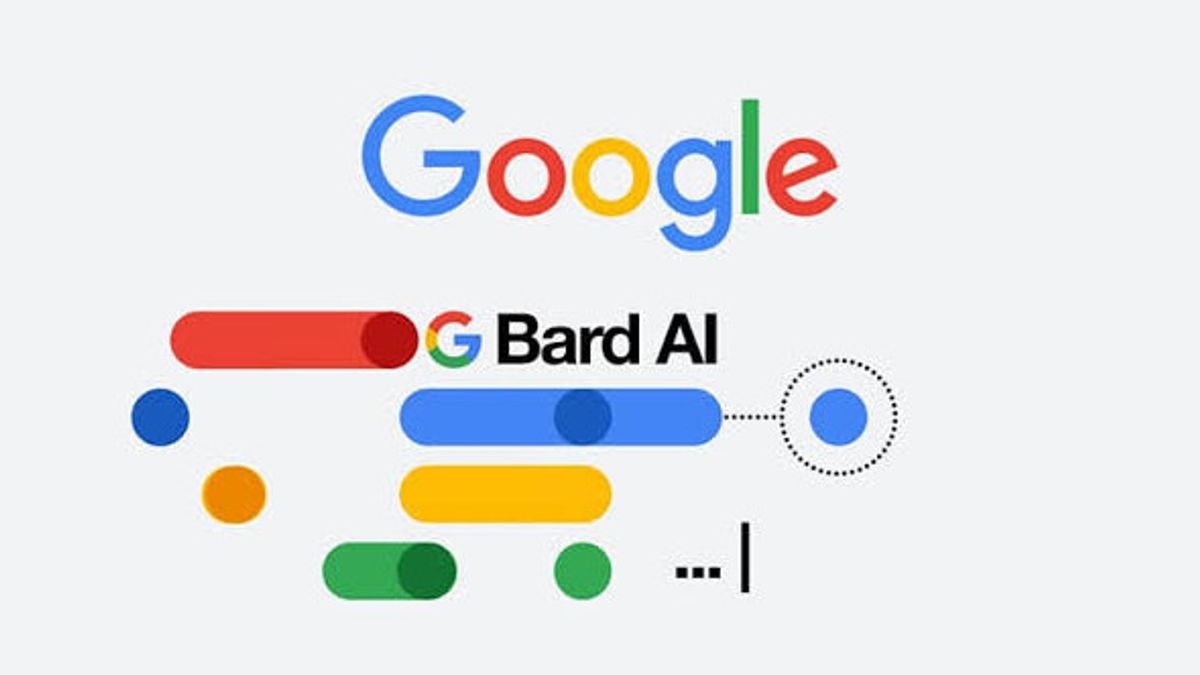
- Google is the most popular search engine in the world with 92% of the market share.
- To offer personalized and AI-powered results, Google has launched the AI Search Engine Google Bard.
- Google Bard is based on the LaMDA language model.
- The platform delivers responses to user queries in such a manner that it resembles a human response.
- The Google Bard has a decent UI and is completely free.
- There’s a lot of work to be done for Google to make Google Bard one of the Best AI Search Engines across the globe.
5. Perplexity AI

- Perplexity AI is a great AI Search Engine that provides direct answers to queries in the form of summaries and citations.
- The platform is powered by OpenAI’s GPT-3 model that employs an advanced GPT-3 NLP system.
- The best thing about this AI-powered search Engine is that it is free of advertisements and does not require users to sign up or log in for searching purposes.
- Perplexity AI is safe and secure and does not collect any personal information of users.
6. Wolfram Alpha
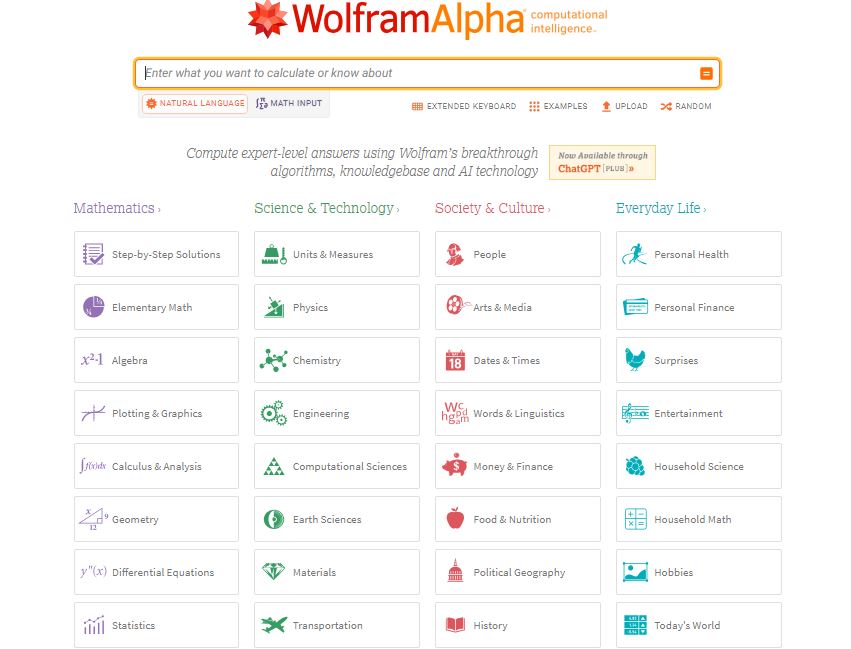
- Wolfram Alpha is a computational AI Search Engine that has over 10 trillion pieces of data in its database.
- The platform is powered by the Wolfram Language which is capable of performing complex calculations and generating visualizations.
- It offers answers to questions in various domains such as maths, science, history, technology, daily life, culture, etc.
- It is one of the best AI Search Engines for research purposes, which operates through natural language processing and semantic analysis.
7. Phind
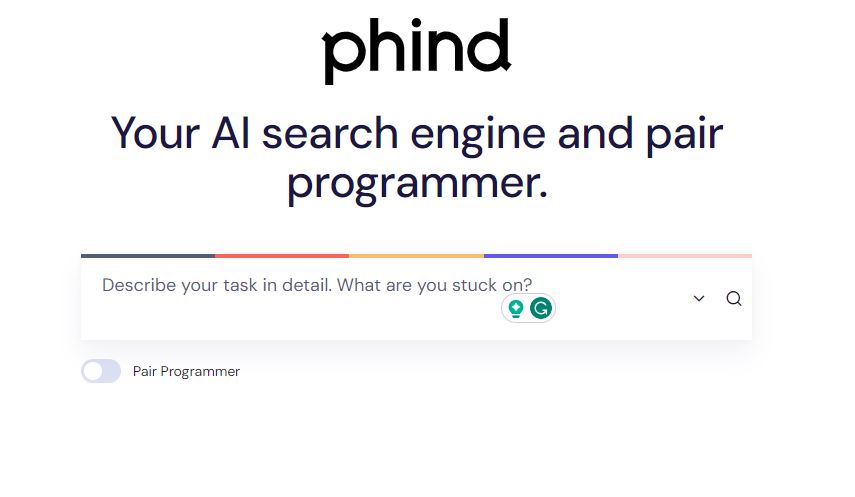
- Phind is one of the best AI Search Engines for Programmers and Coders to find quick and accurate answers to their technical queries.
- Phind leverages large language models for comprehension and employs BERT-based models to extract, as well as prioritize code snippets.
- It retrieves information and code samples from technical sources while also ranking unprocessed site data from Bing.
- It has a Pair Programmer option which is conversational that asks users questions. This feature helps the user in debugging.
- Users can customize their search results using various filters.
- The platform has a very intuitive and easy-to-use UI. Overall it is one of the best AI Search Engines for productive technical research for coders and programmers.
- With a good programming laptop and an AI-Powered Coding Search Engine line, coding and programming looks super-fun and easy.
8. Waldo
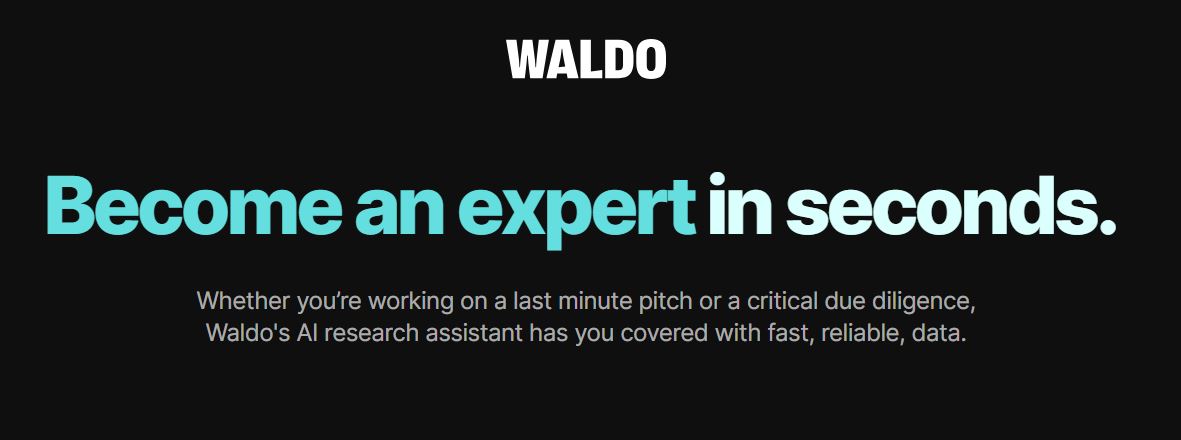
- Waldo is a newly-launched AI Search Engine, which is named after the game “Where’s Waldo”.
- The search engine gathers indexes from both Google and Bing, delivering results through a refined and user-friendly interface that’s been carefully optimized for the users.
- Waldo was launched as Google Chrome Extension, but now it is available as a website and on mobile devices as well.
- Waldo is an extremely useful research tool that allows users to download search results in various file formats.
- Waldo comes with an integrated notepad designed to simplify note-taking, which can later be converted into a comprehensive presentation or exported directly to Google Docs.
9. Andi
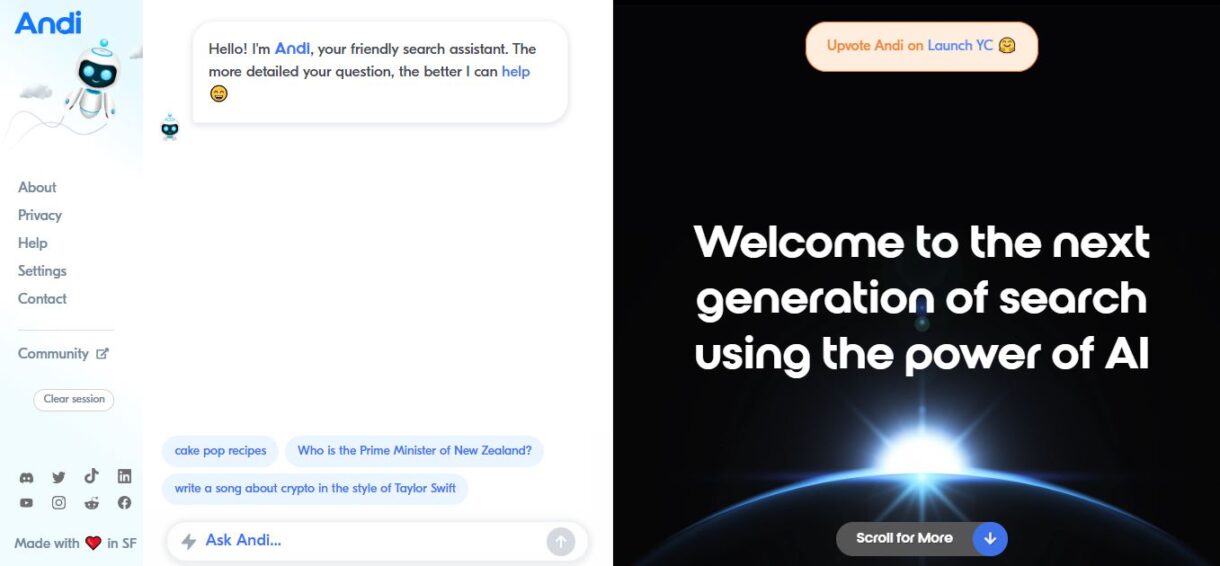
- Andi is one of the best AI Search Engines that utilizes language models to analyze the users’ search queries and deliver the most relevant answers.
- By combining the capabilities and user experience of a chatbot with conversational responses, Andi adeptly attributes the source of the information in its results, ensuring a level of reliability comparable to that of a search engine.
- There is an option to fully avoid chat functionality and receive search results like a normal search engine.
- Andi is a good platform that keeps getting updates every now and then, which makes the platform more accurate.
10. DuckAssist
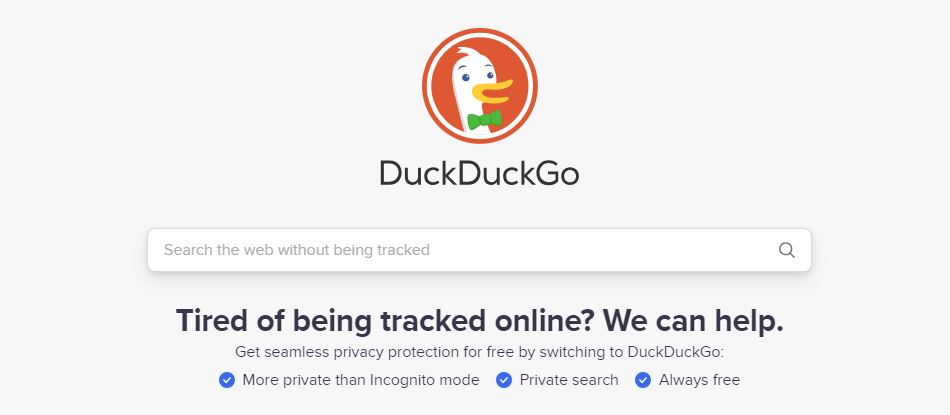
- DuckDuck Go is a well-known privacy-focused search engine. It has recently launched an AI-powered feature named DuckAssist.
- This functionality utilizes natural language technology developed by OpenAI and Anthropic, in addition to DuckDuckGo’s ongoing indexing of Wikipedia and other authoritative websites. This combination enables the provision of natural language summarization capabilities.
- DuckAssist is currently available on mobile and Chrome Extension only, the platform will launch it for all users very soon.
- Privacy, safety, and security is the prime factor for using any product from DuckDuckGo.
Also Read – Best WhatsApp Web Chrome Extensions
Frequently Asked Questions (FAQs)
What sets AI search engines apart from traditional search engines?
Unlike traditional search engines that rely primarily on keyword matching, AI search engines employ sophisticated algorithms to understand the nuances of language, user intent, and context. This enables them to provide more accurate and contextually relevant search results, enhancing the overall search experience.
Can AI search engines understand conversational queries?
Yes, many AI search engines are designed to comprehend conversational queries and natural language input. They can understand the intent behind user queries, enabling users to search in a more human-like manner, such as asking questions or providing incomplete phrases.
What benefits do AI search engines offer?
AI search engines provide more accurate and personalized search results, as they consider the user’s intent and context. They can handle complex queries, offer natural language summarization, and adapt to user preferences over time. This results in a more efficient and effective search experience.
Do AI search engines ensure privacy?
Many AI search engines prioritize user privacy and data security. They may offer options for anonymous searching and refrain from collecting or storing personal information. It’s advisable to review the privacy policies of individual AI search engines to understand their approach to user data.
Are there any limitations to AI search engines?
While AI search engines offer advanced capabilities, they may still face challenges with understanding highly specialized or niche topics. Additionally, their accuracy can vary based on the quality and diversity of their training data. Users should be aware that AI-generated results might not always be error-free.
Also Read – Google Search Tricks and Tips To Improve Digital Productivity
Conclusion
From students seeking academic resources to professionals scouring for industry insights, and from researchers probing for breakthroughs to curious minds navigating the sea of knowledge, AI search engines cater to a diverse array of information needs. We have discussed the best AI Search Engines that offers the best Internet Searching Experience.
